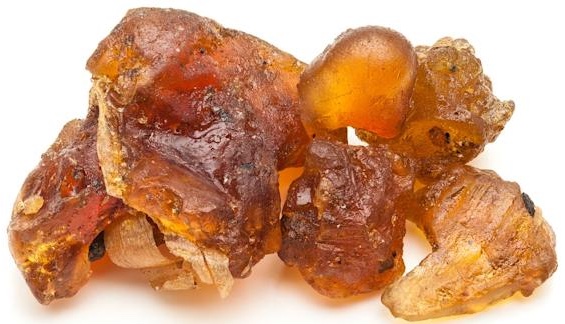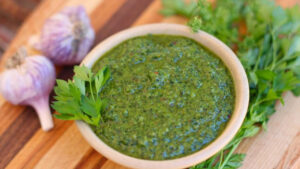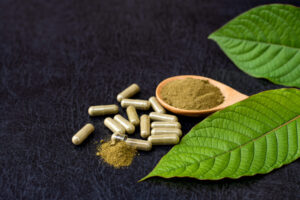Guggul Gum Resin

Guggul gum resin, derived from the Commiphora mukul tree, has a distinctive appearance. It is typically found in irregular, small to medium-sized chunks or tears, ranging in color from golden yellow to a deep brown. The resin is semi-translucent and can have a glossy or waxy surface, making it a visually intriguing natural substance. Its unique, earthy appearance adds to its appeal in both traditional and modern contexts.
Size:
- The size of guggul resin varies depending on how it is harvested and processed. Pieces can range from small granules to larger chunks, typically measuring between 0.5 to 2 inches (1.3 to 5 cm) in diameter. The variability in size is a key characteristic of this natural resin.
Color:
- Guggul gum resin exhibits a range of colors, from pale yellow to amber and deep brown. The color can deepen with age or when exposed to air, and the resin may develop a darker, more opaque appearance over time. The rich, earthy tones of guggul resin contribute to its traditional use in various cultural and spiritual practices.
Texture:
- The texture of guggul resin is often sticky and slightly tacky when fresh, becoming harder and more brittle as it ages. When handled, the resin can feel slightly oily or waxy. Its consistency is influenced by environmental factors, such as temperature and humidity.
Fragrance:
- Guggul gum resin is known for its distinct, aromatic fragrance. When burned as incense or heated, it releases a warm, woody, and slightly sweet scent with hints of spice and earthiness. This fragrance is integral to its use in rituals, meditation, and traditional medicine.
Uses:
- Guggul resin has been used for centuries in Ayurvedic medicine and traditional healing practices. It is commonly used in the preparation of herbal remedies, particularly for its purported anti-inflammatory and detoxifying properties. Additionally, guggul resin is burned as incense in religious and spiritual ceremonies, where its fragrant smoke is believed to purify the environment and promote tranquility.
Cultural Significance:
- In traditional Indian culture, guggul gum resin holds significant cultural and religious value. It is often associated with spiritual practices and is used in various rituals and offerings. The resin’s unique properties and aromatic qualities have made it a revered substance in many cultures, symbolizing purification, protection, and healing.
Harvesting:
- Guggul resin is harvested from the bark of the Commiphora mukul tree, which grows primarily in arid regions of India, Pakistan, and Bangladesh. The process involves making incisions in the tree’s bark, from which the resin exudes and is collected. The harvesting of guggul resin is a traditional practice that has been passed down through generations, contributing to its long-standing importance in Ayurvedic medicine and cultural rituals.
Habitat:
- The Commiphora mukul tree, from which guggul resin is obtained, thrives in dry, rocky environments with sparse vegetation. It is commonly found in the arid and semi-arid regions of the Indian subcontinent. The tree is well-adapted to harsh conditions, making it a resilient source of this valuable resin.
Modern Applications:
- Today, guggul resin continues to be used in various forms, including supplements, ointments, and incense. It remains a key ingredient in Ayurvedic formulations and is gaining recognition in the wellness industry for its potential health benefits. The resin’s unique properties and cultural significance ensure its continued relevance in both traditional and contemporary contexts.
Spiritual Properties
Purification: Guggul resin is traditionally used in spiritual and religious ceremonies for its purifying properties. Burning guggul as incense is believed to cleanse the environment of negative energies and create a sacred space for rituals and meditation.
Protection: The resin is often used as a protective agent in various cultures. Its smoke is thought to ward off evil spirits and provide spiritual protection to those who use it.
Healing and Spiritual Awakening: Guggul is associated with spiritual healing and awakening. It is used to enhance meditation, deepen spiritual practices, and connect with higher consciousness. The fragrant smoke is believed to open the mind to spiritual insights and clarity.
Peace and Calm: Burning guggul resin is known to promote a sense of peace and calm. Its aroma is said to soothe the mind and body, making it an ideal choice for relaxation and stress relief during spiritual practices.
Medicinal Properties
Anti-inflammatory: Guggul has been used in Ayurvedic medicine for its potent anti-inflammatory properties. It is commonly prescribed for conditions such as arthritis, joint pain, and other inflammatory disorders.
Cholesterol and Lipid Management: Guggul is renowned for its ability to lower cholesterol levels and manage lipid disorders. It is believed to help reduce low-density lipoprotein (LDL) cholesterol and triglycerides while promoting high-density lipoprotein (HDL) cholesterol.
Weight Management: Guggul is also used in Ayurvedic formulations for weight management. It is thought to boost metabolism, enhance fat burning, and support healthy weight loss.
Detoxification: Guggul resin is considered a powerful detoxifying agent. It is used to cleanse the body of toxins, support liver function, and promote overall detoxification processes.
Skin Health: Guggul is applied topically or taken internally to treat various skin conditions, including acne, eczema, and psoriasis. Its anti-inflammatory and antimicrobial properties make it effective in promoting clear and healthy skin.
Thyroid Function: Guggul is traditionally used to support thyroid health. It is believed to stimulate thyroid function, helping to regulate metabolism and maintain hormonal balance.
Cardiovascular Health: The resin is also associated with improved cardiovascular health. It is thought to support healthy blood circulation, reduce plaque buildup in arteries, and protect against heart disease.
Antioxidant: Guggul is rich in antioxidants, which help protect the body from oxidative stress and free radical damage. This contributes to its overall health-promoting effects.
Adverse Actions & Side Effects
- Gastrointestinal Issues:
- Upset Stomach: Guggul may cause digestive discomfort, including stomach pain, nausea, bloating, and diarrhea, particularly when taken in high doses.
- Loose Stools: Some users may experience diarrhea or loose stools, especially when starting guggul supplementation.
- Allergic Reactions:
- Skin Rash: Guggul can cause allergic reactions in some individuals, leading to symptoms like skin rashes, itching, or hives.
- Respiratory Issues: In rare cases, guggul may cause respiratory problems, such as difficulty breathing or swelling of the throat, which require immediate medical attention.
- Interaction with Medications:
- Blood Thinners: Guggul may interact with anticoagulant or antiplatelet medications, potentially increasing the risk of bleeding.
- Thyroid Medications: As guggul affects thyroid function, it may interact with thyroid medications, either enhancing or diminishing their effects.
- Cholesterol-Lowering Drugs: Guggul may interfere with the efficacy of statins or other cholesterol-lowering drugs, necessitating close monitoring by a healthcare provider.
- Hormonal Effects:
- Menstrual Irregularities: Guggul’s impact on hormone levels may cause changes in menstrual cycles, leading to irregular periods or menstrual discomfort.
- Potential Teratogenic Effects: Pregnant women are advised to avoid guggul, as it may cause uterine contractions, potentially leading to miscarriage or preterm labor.
- Liver Toxicity:
- Liver Function Alteration: Although rare, high doses or prolonged use of guggul may lead to liver toxicity, manifesting as elevated liver enzymes or liver inflammation. Monitoring liver function is advisable during extended use.
- Headaches and Dizziness:
- Mild Neurological Effects: Some users may experience headaches, dizziness, or lightheadedness, particularly when starting guggul supplementation or increasing the dosage.
- Hypersensitivity:
- Increased Sensitivity to Sunlight: Guggul may increase sensitivity to sunlight, potentially leading to photosensitivity or sunburn in some individuals.
- Contraindications:
- Pre-existing Conditions: Individuals with pre-existing conditions, such as liver disease, bleeding disorders, or thyroid dysfunction, should use guggul with caution and under medical supervision.
- Pregnancy and Breastfeeding: Guggul is generally not recommended for use during pregnancy or breastfeeding due to potential risks to the mother and child.
While guggul gum resin has significant health benefits, these potential adverse actions and side effects highlight the importance of consulting with a healthcare professional before starting its use, especially for individuals with underlying health conditions or those taking other medications.

Lobelia
Lobelia Lobelia is an herb known for its distinctive blue flowers and diverse medicinal properties. It has been used in traditional medicine for its respiratory

Healing Herbal Pesto
Healing Herbal Pesto This healing herbal pesto is packed with both flavor and spiritual healing properties. It’s a versatile sauce that can be used on

Juniper Berries
Juniper Berries Juniper Berries are small, spherical fruits from the juniper tree (Juniperus communis). They are widely recognized for their distinct aroma and flavor, often

Kratom
Kratom Kratom is an evergreen tree belonging to the coffee family, Rubiaceae. It grows to a height of 12 to 30 meters (40 to 100

Chamomile Flowers
Chamomile Flowers Chamomile Flowers are small, daisy-like blossoms known for their soothing and calming properties. These flowers have been used for centuries in herbal medicine,

Yellow Dock
Yellow Dock Yellow Dock, scientifically known as Rumex crispus, is a perennial herb known for its distinctive long, curly leaves and deep yellow root. It